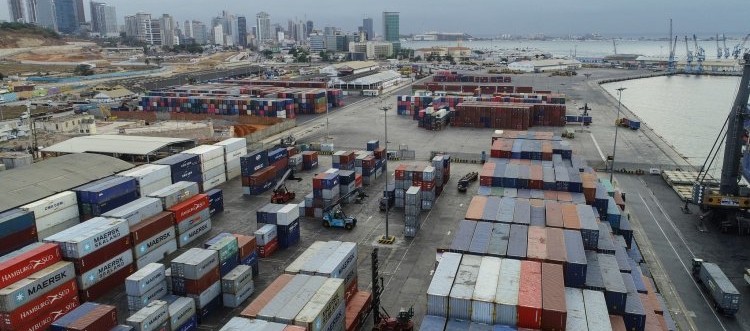(3 Minutes Read)
Angolan authorities have successfully intercepted an illicit attempt to export nearly 3,000 tonnes of quartz — a strategically important mineral — to China. The operation was executed by the Serviço de Investigação Criminal (SIC), in collaboration with the Ministry of Mineral Resources, Oil and Gas, as part of an intensified national campaign to combat the illegal trafficking of critical natural resources.
The seizure took place at the Port of Luanda, where 100 containers, each holding approximately 30 tonnes of quartz, were staged for covert shipment. Authorities believe the cargo would have left Angolan shores undetected if not for SIC’s timely intervention.
The quartz was being exported under the name of a domestic company, whose representatives claimed it was intended for laboratory testing overseas. However, SIC spokesperson Manuel Halaiwa dismissed the explanation as implausible, noting, “Even if it were for testing, it would not justify 100 containers.” The justification failed to meet the legal thresholds required for such exports.
The operation was conducted under the authority of Presidential Decree No. 185/24, enacted on 14 August 2024, which imposes a blanket ban on quartz exports. The decree replaces previous legislation that permitted limited seasonal exports, with a new emphasis on local processing and industrial value addition to boost Angola’s self-reliance and economic development.
Quartz, mined extensively in Angola’s coastal and inland regions, plays a vital role in global industries, particularly in the manufacturing of photovoltaic cells, digital devices, and electronic components. Its soaring global demand — especially in renewable energy and electronics — has made it a frequent target for illegal trade.
While no arrests have been made so far, SIC confirmed that all individuals connected to the attempted shipment have been formally notified and are expected to report to legal authorities. Investigations are ongoing to determine the extent of legal violations and assign individual responsibility.
This is not the first such case. Past operations have uncovered unauthorised extraction from illegal mining sites, underscoring persistent governance challenges in Angola’s mineral sector. The latest interdiction highlights the government’s renewed resolve to enforce regulatory controls and protect national resources from illicit exploitation.
Read Also;
https://trendsnafrica.com/angolas-longonjo-rare-earth-project-secures-usd-268-mn-funding/
By curbing illegal extraction and exports, Angola is strengthening its commitment to economic sovereignty, sustainable development, and regional industrial goals. This incident marks a significant step in the country’s long-term strategy to build a resilient, resource-driven





